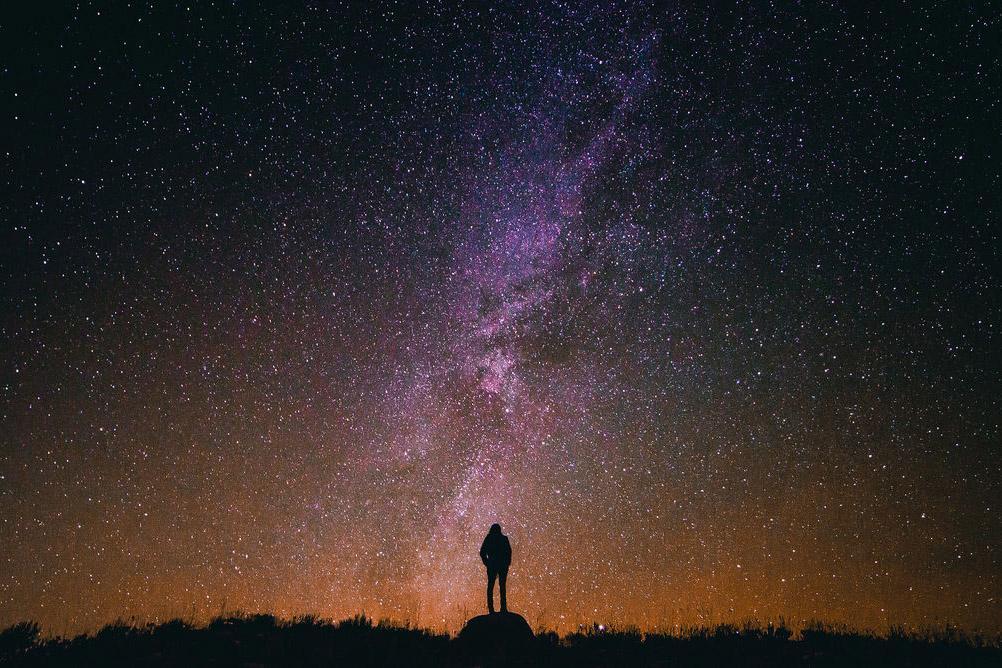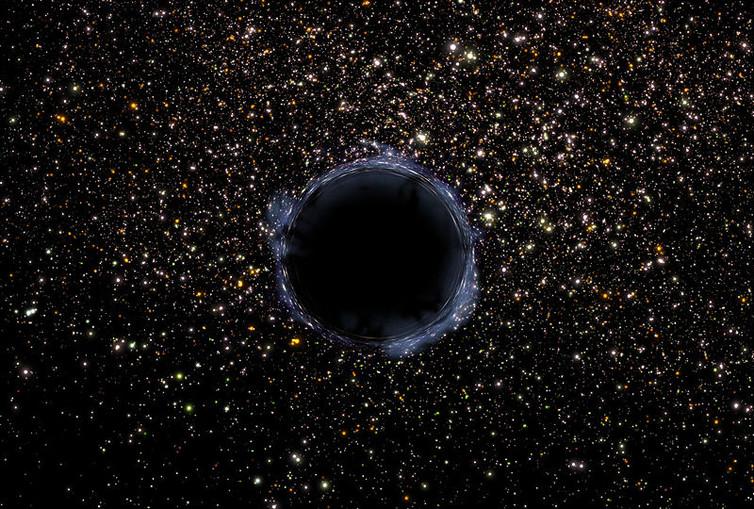Life may be a guide to the evolution of the cosmos – here's how
Many scientists say there’s no purpose to life – but a theoretical study suggests there could actually be a point to all of this...

Your support helps us to tell the story
From reproductive rights to climate change to Big Tech, The Independent is on the ground when the story is developing. Whether it's investigating the financials of Elon Musk's pro-Trump PAC or producing our latest documentary, 'The A Word', which shines a light on the American women fighting for reproductive rights, we know how important it is to parse out the facts from the messaging.
At such a critical moment in US history, we need reporters on the ground. Your donation allows us to keep sending journalists to speak to both sides of the story.
The Independent is trusted by Americans across the entire political spectrum. And unlike many other quality news outlets, we choose not to lock Americans out of our reporting and analysis with paywalls. We believe quality journalism should be available to everyone, paid for by those who can afford it.
Your support makes all the difference.Does humanity exist to serve some ultimate, transcendent purpose? Conventional scientific wisdom says no.
As physicist Lawrence Krauss puts it in his latest book, our evolution on this planet is just a “cosmic accident”. If you believe otherwise, many would accuse you of suffering from some kind of religious delusion. I don’t think this view of life is necessarily correct. Despite that, my worldview is entirely naturalistic – it doesn’t rely on invoking any supernatural powers. And I usually do agree with conventional scientific wisdom.
However, I know of one possible mechanism by which life could, in fact, be endowed with a natural purpose. The idea, just published in the journal Complexity, is highly speculative but worth considering.
In biological natural selection, genes’ ability to replicate themselves depends on how well they can encode traits that permit organisms to out-reproduce other members of their own species. Such traits – for example, camouflage to avoid predators or eyes to enable vision – are adaptations to the environment, as opposed to traits that are just byproducts of adaptations or random genetic noise. Clearly, the purpose of these adaptations is to solve difficult problems, like seeing, digesting or thinking.
Because organisms are bundles of complex adaptations, they are the most improbably complex things in the universe. And improbable complexity is, in fact, the hallmark of natural selection – the fundamental way in which we recognise that a trait actually is an adaptation.
This makes them improbably low in “entropy”, which is the degree of disorder in a physical system. A basic law of physics is that entropy tends to always be increasing so that systems become more disordered, known as the “second law of thermodynamics”. It’s because of this law that you can crack an egg and mix it all together to make an omelette (making it more disordered), but you can’t turn the omelette neatly back into an egg with shell, white and yolk (making it more ordered).
Because natural selection is the process that “designs” organisms – incrementally organising random, disordered matter into complex, functional organs – it is the most powerful anti-entropic process that we know of. Without the incremental changes that natural selection allows, the only way a complex adaptation like a mammalian eye could come into existence would be as the result of random chance. And the likelihood of that is extremely low.
Biological natural selection explains how adaptations have purpose (to facilitate survival and reproduction), and why organisms behave purposefully. It does not explain, however, how life in general could have any transcendent purpose. To figure out the point of our existence, we require a higher-order explanation, like the one I describe.
Cosmological evolution
My higher-order explanation is based on cosmologist Lee Smolin’s theory of cosmological natural selection. Smolin founded his theory on the increasingly popular view that our universe exists in an innumerably vast population of replicating universes – a multiverse. Many physicists put stock in the idea of there being a multiverse, because its existence is predicted by eternal inflation, our most promising model of universe origins.
Smolin reasoned that in a multiverse, universes that were better at reproducing would become more common. He proposed that they could be created from existing black holes. And if black holes are how universes reproduce, then cosmological natural selection would favour universes that contained more black holes. In this theory, life is simply the accidental byproduct of processes “designed” by selection to produce black holes.
Smolin’s theory has considerable intuitive appeal. It seems analogous to Darwin’s selection theory. And black holes do seem to be likely candidates to give birth to new universes. A black hole is an infinitely small concentration of spacetime, matter and energy – a singularity. And it’s exactly this type of phenomenon we believe the Big Bang started from.
In one glaring aspect, however, Smolin’s theory falls short of being analogous to Darwin’s. It does not predict that the most improbably complex feature of our universe will be the one most likely to be an adaptation produced by cosmological natural selection. Because that least entropic feature is life, rather than black holes.

Smolin does identify life as the least entropic known thing. His theory, however, does not make the connection between entropy and selection. That is, it doesn’t acknowledge that, just as improbably low entropy is the hallmark of selection operating at the biological level, this is likely to be true at the cosmological level as well.
The future of life
If life is, in fact, the universe’s reproductive system, the implication is that sufficiently evolved intelligence could acquire the ability to create new cosmic environments. In order to be habitable, these baby universes would need to replicate the physical laws of the life form’s native universe. Cosmologists expect that in billions of years, our universe will cease being habitable. By that point, however, life could conceivably have become intelligent enough to produce new life-supporting universes, perhaps by civilisations “building” something similar to black holes.
However, scientists currently lack the methods to test the idea conclusively. A start would be to discover that there are indeed other universes – something that astronomers are currently looking for.
A basic prediction it does make, however, is that human technological progress is likely to continue into the vastly distant future. If cosmological selection “designed” life to use its technology for universe reproduction, then it seems reasonable to expect that life will succeed in this regard – just as you’d expect an eye produced by biological selection to actually succeed in seeing.
That doesn’t mean that unceasing technological progress is guaranteed – after all, we could use our technology to destroy ourselves. Nevertheless we can reasonably expect humanity – or whatever it evolves into – to be sticking around for a long, long time.
It’s not a new idea to propose in general terms that life might constitute a mechanism for cosmological evolution; good histories of this idea are already published. The new aspect of my research is that it spells out exactly why life – as the least entropic known thing in the universe – is more likely than black holes (or anything else) to be a mechanism of universe reproduction. I hope others will continue to explore this idea.
Michael E. Price is a senior lecturer in psychology and the director at the Centre for Culture and Evolution, Brunel University London. This article was originally published on The Conversation
Join our commenting forum
Join thought-provoking conversations, follow other Independent readers and see their replies
Comments